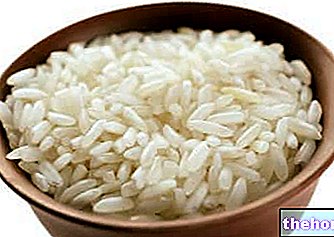There Cortisol Connection Diet is a diet proposed in the States, in the first half of the 2000s, by Shawn Talbott P.H.D, author of the book "The Cortisol Connection Diet'.
It is a dietary regimen useful for controlling the secretion of cortisol in the body; as we know, cortisol is a "hormone which, if produced in excess, manifests with some" evidence "some UNDESIRABLE effects on weight control, such as reduction of lipolysis and increase of muscle catabolism.

It often happens that, during the therapy process of weight loss, at a certain point the weight stops decreasing; often, this stall condition follows a period of great slimming effectiveness (reduction of body weight by more than 3.5-4 kg Some professionals interpret this arrest in weight loss as a side effect of the hyper-secretion of cortisol, a bio-regulator that (in many subjects, but NOT in all) is produced almost in proportion to general stress (both psychic and physicist).
From my point of view it is unequivocal that a hypothetical hormonal imbalance can weigh heavily on the metabolic and energy balance, however it would be appropriate to start talking about THRESHOLD blood concentrations. It is therefore not necessary to further confirm the stress-cortisol relationship, because in the literature it is already possible to find several related works; rather, it is ESSENTIAL to understand and demonstrate what are the PARA-physiological hormonal fluctuations that could have a negative impact on the organism. In other words ...
Nobody cares if more cortisol is produced due to stress ... what we are ALL curious to know is WHAT is the level of hypersecretion that is counterproductive to a weight loss diet!
In my opinion, without such data, bringing up hormonal alterations COULD seem like a good excuse to justify the failure of a clumsy specialist and / or an unmotivated patient. Furthermore, remember that due to a series of concomitant factors, the closer one gets to one's "balance point" (probably located near the desired physiological weight), the less the body will be willing to reduce its own body weight.
A similar condition often induces professionals and laymen to insist on therapy by further limiting the energy intake of food. This is a wrong attitude, since in my opinion (confirming the claims of many other specialists) prolonging a weight loss (low calorie) diet excessively, regardless of how demanding it may be, it often proves to be a failing and counterproductive strategy.
Apart from cortisol, to establish the time limit of a treatment, it is essential to take into account some factors:
- Therapeutic compliance, i.e. the patient's difficulty or not in following and respecting the eating pattern. According to the Cortisol Connection Diet, the demotivation and the suffering of the person in following a restrictive or unsuitable diet would favor the alteration of the cortisol itself ... I have serious doubts about it, even if it seems unequivocal anyway the correlation between diet NOT personalized and failure of the therapy itself. What for a supporter of the Cortisol Connection Diet might seem like a "spike in cortisol ... I justify it with the patient's omission (often out of shame) in declaring the tendency to repeated evening cheats. they are often justified by the excessive nutritional restriction of the diet.
- Nutritional balance: it is not advisable (and it is not professional) to administer for long periods deficient, unbalanced eating patterns or those requiring multiple integration; in any case, any low calorie (even the 10% reduction in useful calories) should NOT be followed for more than 8 months. Furthermore, many of us still live (who knows for how long ...) in the "age of abundance", what's the point of spending a lot of money to eat less and buy pills?
- Body mass changes: seeing the scale needle go down is certainly a desirable result, especially for an overweight or obese subject; nevertheless, it is quite important that this corresponds to a REAL decrease in subcutaneous fat with preservation of muscle mass. of weight but losing muscle is absolutely wrong! It is known that in conditions of nutritional depletion the weakening of muscle anabolism and super compensation is inevitable; however, a realistic goal could be to keep the muscle mass as intact as possible. in this case, the Cortisol Connection Diet would attribute the catabolism of the lean tissue to the excess of circulating cortisol; in reality, what most often happens is that the patient exaggerates with physical activity at the same time as caloric restriction or that the dietary regime is typically hypoglucidic and concomitant with an aerobic sport, therefore strongly oxidative.
This Cortisol Connection Diet tries (to no avail in my opinion) to disregard the concept of calorie restriction; rather, the "nutritional balance is emphasized by respecting the" Balance Index "parameter. This foresees a bifocal management of the feeding: on the one hand the quantity (considered NOT small, but right!) And on the other the quality.
Regarding quantity, I must admit that some small tricks are proposed that are very useful for calculating food portions, while as regards quality it is sufficient to follow the rule of remuneration; that is: foods can be of good quality (foods with a low glycemic index, containing fibers, proteins with a high biological value, unsaturated and polyunsaturated lipids) or of low quality (refined foods with a high glycemic index, with few fibers, incomplete proteins, lipids saturated or hydrogenated). For each of the 6-7 RECOMMENDED daily meals it is essential to manage food by keeping the Balance Index high, compensating low quality foods with others of good quality: for example white bread (low q.) + Grilled chicken breast (high q. .).
Ultimately, the Cortisol Connection Diet tries to limit the hypersecretion of cortisol through the fragmentation of daily meals, with particular attention to the morning period, which is more sensitive to the "oscillation of this hormone". It also aims at the correct choice of food associations and "identification of an effective but not drastic slimming caloric range (1200-1800kcal).
Personally, I think the choice of providing almost all nutrients in a balanced way to every meal is admirable, and I think it is useful to provide a valid tool to calculate the most suitable portions; on the other hand, don't tell me that the Cortisol Connection Diet is NOT low-calorie! It is! The calculation of portions, the distribution and management of meals clearly reflect traditional eating patterns and guidelines, with the difference that a classic method builds a GRAMMED program, while the Cortisol Connection Diet is much more practical and elastic in portions, and therefore also approximate.
In conclusion, I find the Cortisol Connection Diet a useful strategy for controlled weight loss but once again there are no innovative concepts that can justify the preference over the traditional method.









.jpg)


















